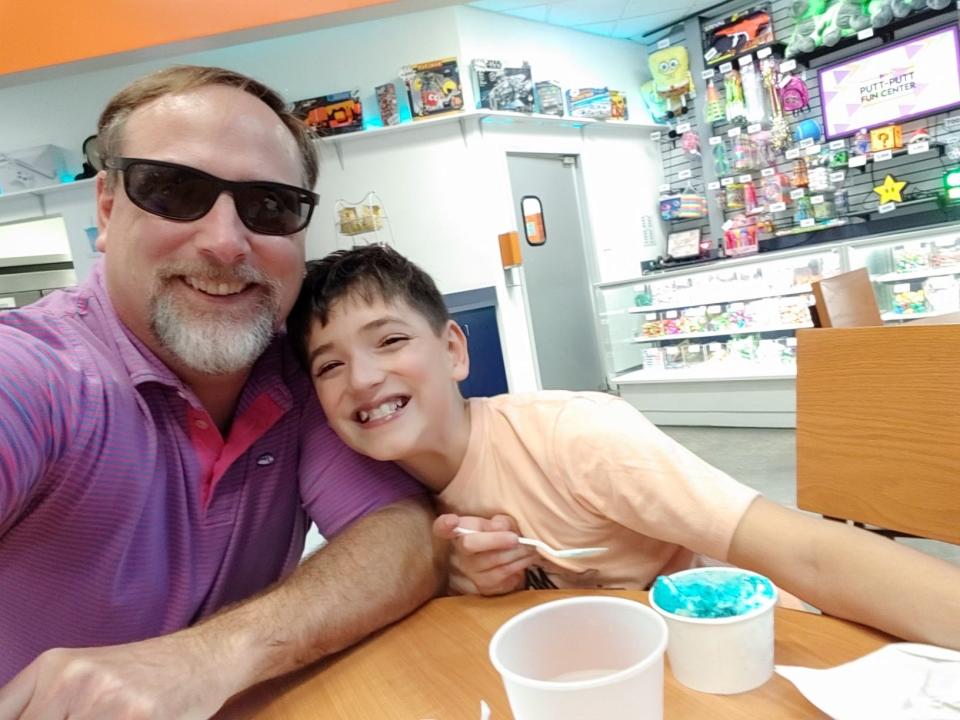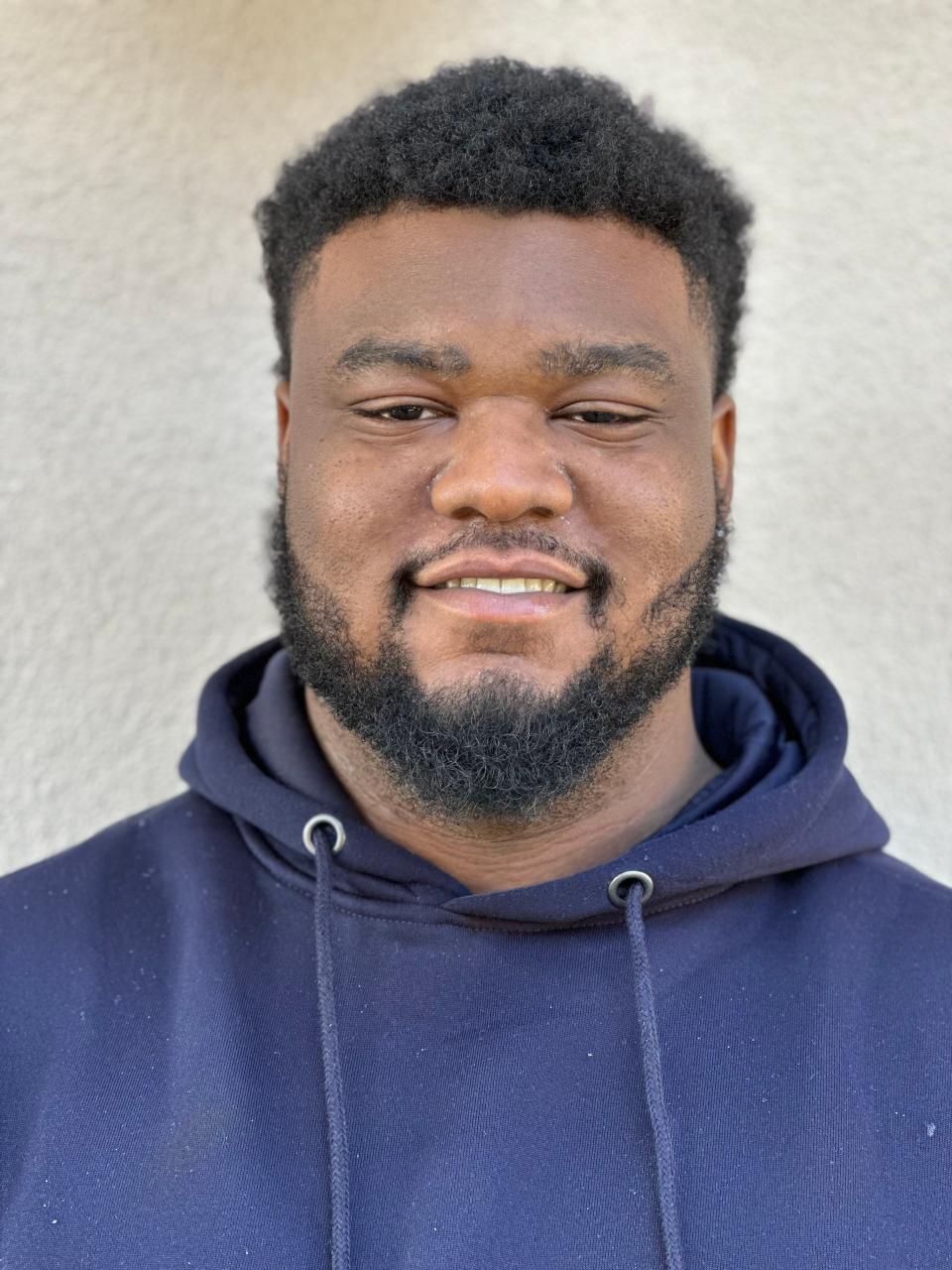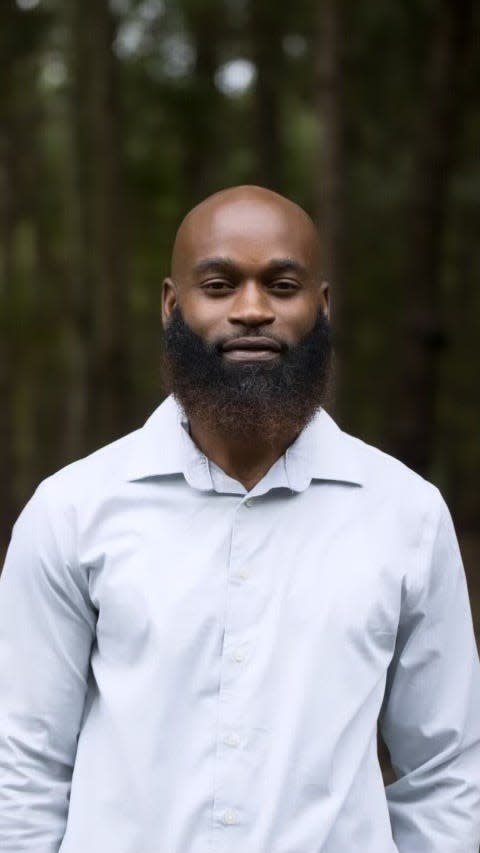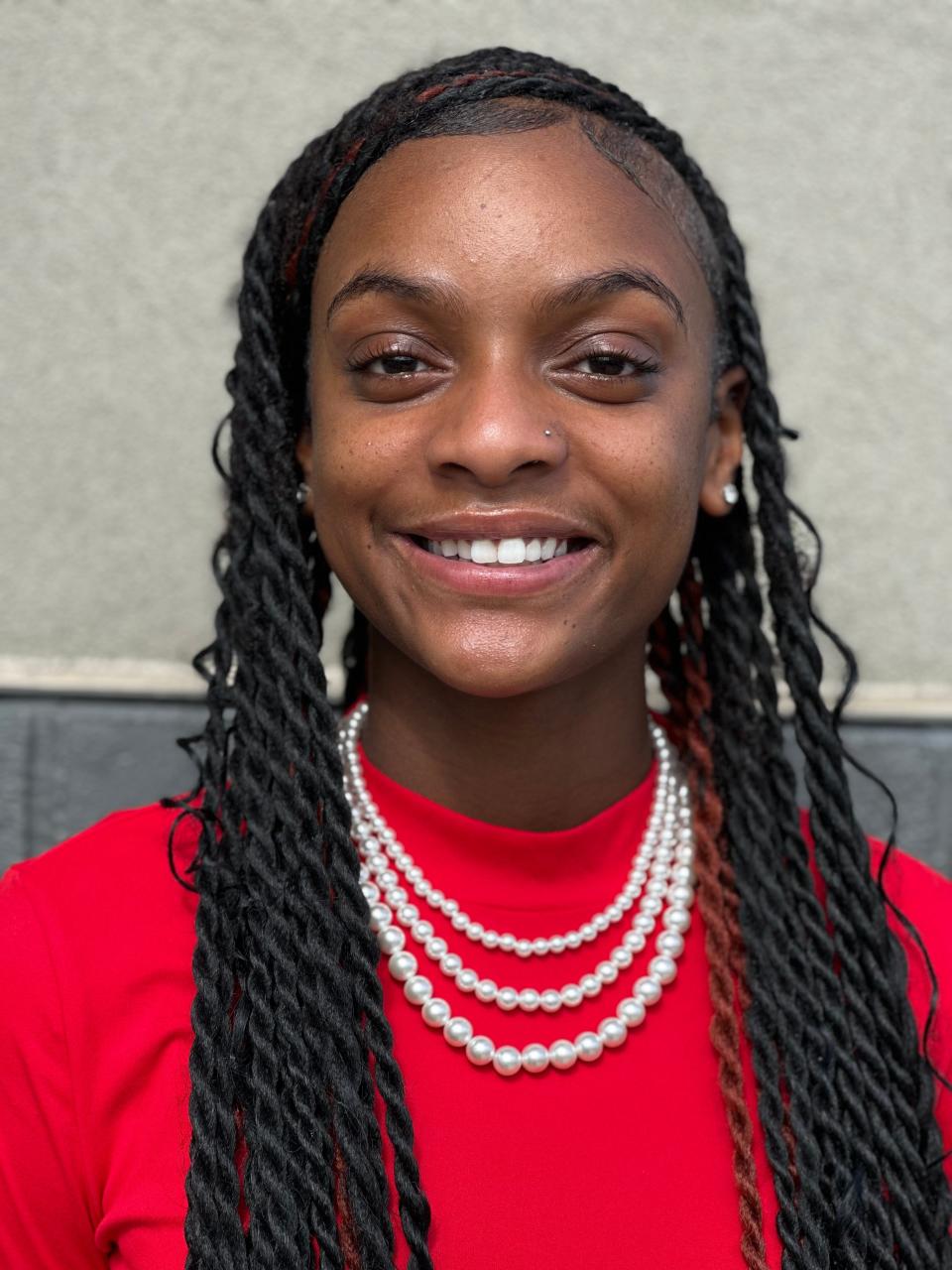How 6 people have changed lives and changed themselves in Fayetteville mentoring programs
It took one child and less than a year to change Fayetteville resident Len Black’s life for the better.
Black, 57, got involved with Fayetteville Urban Ministry’s Find-a-Friend program in 2022 after a participant in the program came to his church in the Haymount neighborhood and spoke about the program, he said. Find-a-Friend is a youth mentorship program that began in 1982 with the aim of reaching kids ages 6 to 17, according to Fayetteville Urban Ministry.
Black said recently that he thought the program would be a nice way to get involved with the community after his youngest daughter went off to college. This month, he’s celebrating a year of serving as a mentor for Find-a-Friend.
The program has brought him new relationships and cherished memories with his mentee, 12-year-old Abraham Moore, Black said.
“We get together once a week for three or four hours,” he said. “I have three daughters, so having a son-like figure that we can do stuff with and talk sports with has been a lot of fun.”

Abraham and his family have become a part of Black’s family, too, he said.
“My whole family has met him. He’s included in the family dinners and we do church dinners. My daughters love him,” Black said. “We just try to be as involved as they would like for us to be without overstepping our bounds.”
Black said he texts with Abraham’s mother, Tiffany Vaga Moore, several times a week to coordinate visits and activities.
“I, of course, wouldn’t trade my three daughters for anything, but it is fun to go throw the baseball and shoot basketball and play lacrosse and hit golf balls,” he said. “We’ve done all sorts of fun activities like that.”
Vaga Moore said Friday that she found out about Find-a-Friend by searching online for programs in the area, and they met Black after Abraham had been in the program for about a year.
“I really liked him from the beginning,” she said. “After like a week or two, I felt comfortable letting them go off and do stuff together.”
Abraham, who has five sisters, said Friday that Black makes him feel appreciated and cared for.
“We play tennis and basketball,” he said. “We go to places like putt-putt and Main Event.”
Vaga Moore said she appreciates that Black can have conversations with Abraham that her son might not feel comfortable having with her.
“Sometimes, if I’m having a problem, I’ll mention it to him and see if maybe he can talk to Abraham,” she said. “A lot of times, boys don’t want to talk to their moms… He’s got somebody that he can confide in if he needs to.”
How Fayetteville State students impact local kids
A similar program, R.O.O.T.S. Mentoring, connects Fayetteville State University students and adults in Cumberland County with children in need. Marcus Jenkins founded the program, which uses the acronym ROOTS as shorthand for “Regiment of Overriding the Statistics,” as a student at FSU during an internship with Cumberland County Schools, he said.
It was through that program, said Tyler Joyner, 24, that he saw his life change for the better.
“I started off as a mentee, but I’m kind of transitioning to become a mentor,” Joyner said last week.
Joyner said he was a sophomore at Alger B. Wilkins High School when Jenkins came to his class as part of a R.O.O.T.S. partnership with Cumberland County Schools.
“In the beginning, I did not like it,” he admitted, laughing. “I wasn’t used to seeing a man in a suit telling me what to do, so I didn’t really listen to him at all. Then, one day, we kind of bumped heads… We had a one-on-one conversation, and I realized that he wasn’t too much different from me. Ever since then, I’ve been locked in.”

Jenkins became a big brother figure to him and showed him that he wasn’t on his own in life, even once driving three hours to visit Joyner when he briefly moved away, Joyner said.
“I always only had myself,” he said. “Teachers would say, ‘OK, we’re here for you, we’re here to help you,’ but nobody ever helped. There have been times where I just needed somebody to talk to, needed help, needed food, needed a place to lay my head — I could call Marcus and he would come through every time. Every single time.”
That love and reliability began to have an impact, he said.
“I’ve been through a whole lot… I didn’t think that I could mentor people,” he said. “I felt myself growing as a person. I always felt like I had to grow up too fast… Marcus definitely helped me open my eyes to a lot.”
Now, Joyner said, he wants to do the same for young people in the same position.
“I want to help people who’ve been through the same stuff that I’ve been through,” he said, eyes lighting up. “I want to be living proof.”
The man, who as a child thought he couldn’t let anyone in, now plans to go to barber school this winter and hopes to open up his own shop someday, he said.
“The only reason why I don’t want to leave Fayetteville is because of certain people that I met,” Joyner said.
That impact doesn’t only apply to the children in R.O.O.T.S.
Casey Gregg, 38, is the president of the program’s male mentorship team. He said last week that the program has helped to turn his life around.
“I got home from prison and had a vision to get back into the community to help coach guys, mentor guys that was coming from the same situation that I was in,” he said.
After meeting Jenkins and joining R.O.O.T.S., Gregg said, he had high hopes for the program but was initially frustrated by the low turnout at their activities. Turnout eventually increased through word of mouth and networking.
“We kind of got to do the work and then let the work speak for itself,” Gregg said. “It took me about six months to a year to actually realize that the work was going to speak.”
Gregg, who now studies cybersecurity at FSU and oversees the program’s 20 to 25 male mentors, said that he hopes to connect R.O.O.T.S. with other nonprofits in Cumberland County.
“My vision is to connect the gap,” he said. “My 9 to 5 is to get out there and engage the community.”

Nadiyah Randolph, 20, moved from Grimesland to Fayetteville to study forensic science at FSU and learned of R.O.O.T.S. during her freshman year in 2021, she said last week.
“I didn’t think this program, this organization, would have as much impact as it’s had on me, but it’s truly made me the woman I am today,” Randolph said.
She said she has mentored at least five young women and enjoys sharing lessons on self-affirmation, love and self-image with girls in the program. Randolph and her fellow mentors work with seven local schools to do weekly visits with at-risk students, she said.
“They already have that authoritative view, so we try to be more of a big sister and bridge that gap,” she said.

Working with the children has, in turn, changed her, Randolph said.
“It made me be more accountable for myself,” she said. “You really have to start looking at yourself more. I can’t be saying anything that I wouldn’t do myself.”
Looking forward
All of the mentors agreed that increased community involvement is crucial for programs like theirs.
“I think everybody should get involved in R.O.O.T.S.,” Randolph said. “It’s so critical.”
Involvement doesn’t have to be time-consuming to make a difference, Black said.
“To have a positive role model or figure in their life for an investment of two hours a week… the impact that you can have, and the way you can help steer the child down, maybe, the right track… wow, that’s invaluable,” he said. “I think people should go try it out.”
It’s a value that mentees like Joyner can attest to.
“You can’t push them away… They will fight for you,” Joyner said. “I felt like I was going through it by myself until I came across these guys.”
Got a tip for a follow-up? Government watchdog reporter Lexi Solomon can be reached at ABSolomon@gannett.com or 910-481-8526.
This article originally appeared on The Fayetteville Observer: Fayetteville mentorship programs work to change children's lives

